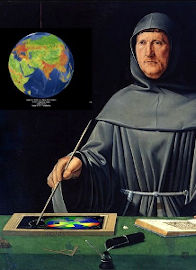"Understanding & Acting" conference
Can ecological accounting enable the emergence of an economy that respects the biosphere boundaries?

Conference by Clément Feger. Clément Feger is a Senior Lecturer in Management Sciences at AgroParisTech and a researcher at the University of Montpellier (MRM laboratory). He is the scientific head of the "Ecosystem" axis of the newly created Chair of Ecological Accounting (AgroParis tech, Université Paris-Dauphine, Université de Riems Champagne-Ardenne) and co-director of the program "Human Enterprises: Ecology and Accounting Philosophies" at Collège des Bernardins. He teaches strategic analysis of environmental management, ecosystem accounting, as well as social sciences applied to problems of biodiversity protection in the context of international field exercises. His work is at the crossroads of management sciences and conservation sciences and focuses in particular on the development of new accounting approaches for strategic ecosystem management. Clément favours action-research as a way of working, which he conducts with actors committed to the environment: large environmental NGOs, companies in the environmental sector or public institutions.
Abstract:
The idea of having to rapidly transform our economic system and our modes of collective organization to meet the need to preserve the biosphere, our "life support system", is now widely shared. What can accounting, the fundamental language and steering tool of human organizations, do to operationalize such a transformation? In this conference we will deal in particular with recent proposals in the field of accounting for biodiversity and ecosystems. How can the "values" of the biosphere and ecosystems be taken into account in accounting information systems that are still largely blind to these issues? How can new accounting systems be invented that are specifically dedicated to the organization of action for the maintenance and restoration of ecosystems at the level of organizations, territories and States? How can these accounts help strengthen public and private responsibility for respecting ecological limits? On what world views and principles of use should these accounts be based? Which actors (governments and public institutions, business managers and executives, scientists and nature conservation organizations, etc.) can mobilize these accounts to bring about the necessary transformations at their level of action?

See also
Brouillon créé le 29 March 2023 à 15h16
10 January 2023
(Français) La notion de sobriété renvoie à une distinction implicite entre désirs et besoins, la distinction entre...
More infoWhy is sobriety necessary, and the obstacles to its implementation?
26 November 2019
(Français) La notion de sobriété renvoie à une distinction implicite entre désirs et besoins, la distinction entre...
More info



